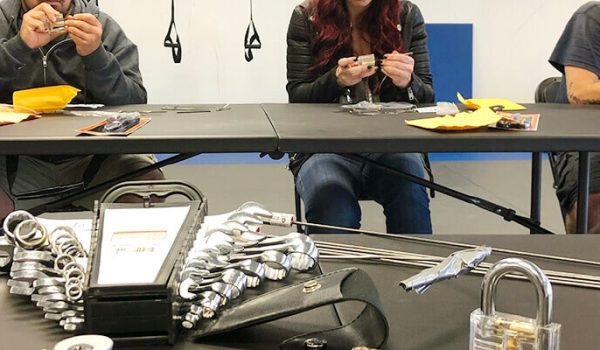Locksmithing is an ancient profession that dates back to the Egyptian era when locksmiths were revered for their ability to create and break locks. Today, locksmiths play a crucial role in modern society, helping people secure their homes, businesses, and valuables. If you’re looking to become a locksmith or expand your knowledge and skills in this field, enrolling in locksmith course is an excellent first step.
Basic Locksmithing Classes
Basic locksmithing classes cover the fundamental skills and techniques that all locksmiths must know. Here are some topics you can expect to learn in basic locksmithing classes:
- Introduction to locksmith tools and equipment: You’ll learn about the various tools and equipment locksmiths use to repair, install, and maintain locks.
- Key cutting and duplication techniques: You’ll learn how to cut and duplicate keys for different types of locks, including mortise, cylinder, and padlocks.
- Basic lock picking and bypassing techniques: You’ll learn how to pick locks using different methods, such as raking, single-pin picking, and bumping.
- Rekeying locks: You’ll learn how to change the key pins in a lock to make it work with a new key, without having to replace the entire lock.
- Key identification and code reading: You’ll learn how to identify different types of keys and read key codes to make duplicate keys.
Advanced Locksmithing Classes
Advanced locksmithing classes build on the basic skills and techniques covered in basic classes and introduce more advanced topics. Here are some topics you can expect to learn in advanced locksmithing classes:
- Master keying and key systems: You’ll learn how to create master key systems for buildings with multiple locks and keys.
- High-security lock installation and maintenance: You’ll learn how to install, maintain, and repair high-security locks, such as electronic, biometric, and magnetic locks.
- Access control systems and electronic locks: You’ll learn how to install and maintain access control systems and electronic locks for homes, businesses, and institutions.
- Safe and vault opening and repair: You’ll learn how to open and repair different types of safes and vaults, such as combination, digital, and key-operated safes.
- Automotive locksmithing: You’ll learn how to repair and replace car locks, keys, and ignition systems.
Training and Certification
Formal training is essential for anyone looking to become a professional locksmith. Accredited locksmith training programs provide comprehensive education and hands-on experience in different aspects of locksmithing. After completing your training, you’ll need to obtain certification and licensing to practice as a locksmith. Here are some things to consider when choosing a locksmith training program:
- Accreditation: Make sure the program is accredited by a recognized agency, such as the Associated Locksmiths of America (ALOA) or the National Locksmithing Institute (NLI).
- Curriculum: Check if the program covers the topics and skills you want to learn and if it offers both basic and advanced courses.
- Instructors: Look for programs that have experienced and knowledgeable instructors who are active in the locksmithing industry.
- Cost: Compare the costs of different programs and factor in any additional expenses, such as textbooks, tools, and equipment.
After completing your training, you’ll need to obtain certification and licensing from your state or local government. The requirements vary depending on where you live, but generally, you’ll need to pass a background check, provide proof of education and training, and pass a written and practical examination. Some states also require locksmiths to have liability insurance and to renew their licenses regularly by completing continuing education courses.
Career Opportunities
The demand for locksmiths is expected to grow in the coming years, driven by the increasing need for security in homes, businesses, and institutions. According to the Bureau of Labor Statistics, the median annual wage for locksmiths in the United States is $44,990, with the top 10% earning more than $68,200 per year. Here are some career opportunities you can explore as a locksmith:
- Residential locksmith: Install, repair, and maintain locks and security systems in homes and apartments.
- Commercial locksmith: Work with businesses and institutions to secure their premises and assets.
- Automotive locksmith: Specialize in repairing and replacing car locks, keys, and ignition systems.
- Safe and vault technician: Open and repair safes and vaults for individuals and businesses.
- Access control specialist: Install and maintain access control systems for homes, businesses, and institutions.
Entrepreneurial Opportunities
Becoming a locksmith also offers opportunities for entrepreneurship and self-employment. As a locksmith, you can start your own locksmith business and offer your services to individuals and businesses in your community. Here are some tips to help you start your own locksmith business:
- Develop a business plan: Define your target market, services, pricing, marketing strategy, and financial projections.
- Obtain the necessary licenses and permits: Check with your local government to see what licenses and permits you need to start your business.
- Invest in quality tools and equipment: Purchase high-quality tools and equipment that are durable and reliable.
- Build a network: Join professional organizations, attend industry events, and connect with other locksmiths to build your network.
- Market your services: Use social media, word-of-mouth, and local advertising to promote your business and attract customers.


